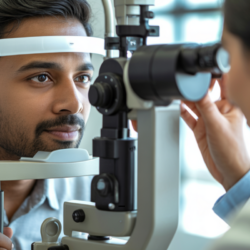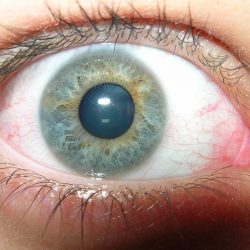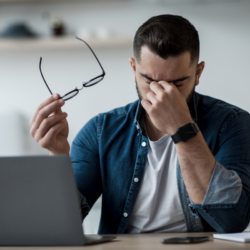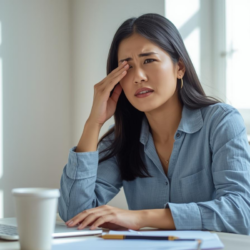Practitioners use homeopathy, a gentle and natural form of medicine, to treat various health conditions, including those affecting vision and visual disorders. Homeopathic remedies are derived from plants, minerals or other natural substances, which laboratories dilute significantly to improve tolerance while targeting specific symptoms.
At Soin-et-Nature, your approved online pharmacy, you will find a wide range of homeopathic remedies to support your vision on a daily basis. We select trusted laboratories to offer safe, high-quality products at competitive prices.
How can homeopathy support your vision on a daily basis?
Homeopathy can support vision in both a curative and preventive manner. To limit the risk of eye disorders that can impair vision, it is essential to take care of your eyes on a regular basis. Many homeopathic remedies help to support optimal vision.
For example, some remedies relieve eye strain, blurred vision, and red, irritated eyes. With age, the mucous membranes become more easily dehydrated, which weakens the eye tissue and can ultimately affect vision.
How can you prevent dry eyes to protect your vision?
To prevent dry eyes and protect your vision, you can take Alumina 5CH, 3 granules morning and evening. If you experience signs of eye dehydration, you can combine Alumina 5CH with Lycopodium 5CH and Causticum 5CH, especially if you feel a burning sensation.
To complement these homeopathic medicines, consider using eye drops containing Euphrasia or calendula, as well as saline solution. Apply two drops per day to each eye to rehydrate your mucous membranes and maintain good vision.
How can you reduce eye strain caused by screens and preserve your vision?
Poor lighting or prolonged exposure to screens (computers, smartphones, tablets) can cause eye strain. Even if this strain is mild, over time it can affect visual comfort and influence both near and far vision.
If your eyes are under a lot of strain from screens, you can take Jaborandi 5CH, 3 granules morning and evening. This homeopathic support is part of an overall healthy lifestyle, including regular breaks and good ergonomics, to protect your vision in the long term.
What homeopathic remedies should you use for blurred vision and visual discomfort?
Do you experience blurred vision or persistent eye discomfort at the end of the day? If so, add Ruta Graveolens 5CH and/or Arnica Montana 5CH. These remedies help relieve eye strain, red eyes and pain, improving visual comfort and overall vision.
To cleanse the eyelids and limit the presence of irritants, apply two compresses soaked in arnica vegetable oil and cornflower water to your closed eyes for half an hour. This gentle routine soothes the eyes and indirectly contributes to better everyday vision.
Homeopathy and vision: how can these remedies be used to complement ophthalmological care?
Homeopathy offers a holistic approach to health and vision, based on the principle of similarity: “like cures like”. Each remedy is chosen according to specific symptoms, such as dry eyes, fatigue or a burning sensation.
For example, someone with conjunctivitis or eye irritation may benefit from remedies such as Euphrasia, which is used to soothe inflammation and irritation of the eyes. However, homeopathy is not a substitute for conventional ophthalmological treatments: regular check-ups with an ophthalmologist remain essential to preserve your vision.
For those who want a more natural or complementary approach, homeopathy is nevertheless an interesting option for supporting vision and eye comfort. To find out more, browse our selection of remedies online and contact our team of healthcare professionals for personalised advice.
FAQ – Homeopathy and vision
1. Can homeopathy really help vision? Homeopathy offers a gentle, holistic approach that can support vision by addressing certain symptoms such as eye strain, dryness or mild irritation. It is not a substitute for ophthalmological treatment, but can be used as a complement to improve everyday visual comfort.
2. What homeopathic remedies are used for dry eyes and vision? For dry eyes that may impair vision, remedies such as Alumina 5CH, Lycopodium 5CH or Causticum 5CH are often recommended, depending on the symptoms experienced (dryness, burning, discomfort). They can be combined with Euphrasia or calendula eye drops and saline solution to rehydrate the mucous membranes and protect vision.
3. Are there any homeopathic remedies for eye strain caused by screens? For eye strain caused by prolonged exposure to screens, you can use Jaborandi 5CH, taking 3 granules morning and evening, as part of your overall eye care routine. This support aims to improve visual comfort and preserve vision, in addition to good habits (regular breaks, good lighting, appropriate distance).
4. Can homeopathy replace a consultation with an ophthalmologist for vision problems? No, homeopathy is not a substitute for a consultation with an ophthalmologist, especially in cases of severe pain, sudden loss of vision or known pathology. Rather, it acts as a natural supplement to support vision and relieve certain discomforts, while remaining part of conventional medical care.





